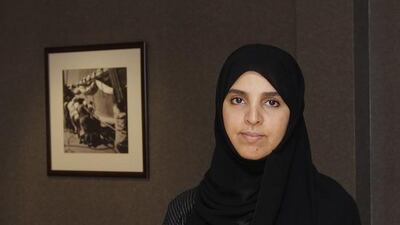ABU DHABI // Candidates who failed to win a seat on the Federal National Council have expressed their disappointment at the low voter turnout.
Only 79,157 out of 224,000 eligible voters – about 35 per cent – cast their ballots.
“With the increased knowledge in society and the awareness raised I expected around 50 per cent, but not less than 40,” said Buthaina Al Qubaisi, who ran for a seat in Abu Dhabi.
Ms Al Qubaisi said that a shortage of voting centres and a lack of awareness about the “refrain from voting” option had contributed to lower numbers than expected.
“The no-vote option is important because people should be participating in these elections in some way, even if they don’t like any of the candidates,” she said.
Like many of the 330 candidates, Seham Al Falahi campaigned on social media but it was not enough. Face-to-face contact was just as important.
Hoping to represent Dubai for the first time, Ms Al Falahi said she was most disappointed at the low turnout of female voters, who accounted for 39 per cent of ballots.
After the votes were tallied on Saturday, only one of 78 female candidates was voted into office.
“If more women had voted then surely more women would have been elected,” Ms Al Falahi said.
Another unsuccessful candidate, Khaled Al Qubaisi, of Abu Dhabi, said: “Voting is a national duty and those who do not perform it should face fines and punishments.”
More than 20 countries have mandatory voting laws, including Australia – which has a turnout of 81 per cent – and Argentina and Brazil, who both have turnouts of 83 per cent.
Mr Al Qubaisi said that voters should have also concentrated more on candidates’ messages.
“I noticed voters still choosing candidates based on tribal affiliations rather than the issues,” he said.
Mr Al Qubaisi said the process would benefit by reducing the number of candidates through a more rigorous vetting process, and then offering the few that remained more exposure.
He suggested televised debates and more newspaper and radio profiles and interviews.
“The local media needs to play a central role in exposing the candidates to the public without the need of spending huge sums for advertising,” he said.
Ms Al Qubaisi said: “I was proud and honoured to be involved in this democratic process, and even though I had to give up some of my privacy I feel more fulfilled knowing I am contributing more to the UAE society.
“I hope to reach out even further during the next elections.”
All three said they would run again in 2019.
talsubaihi@thenational.ae

